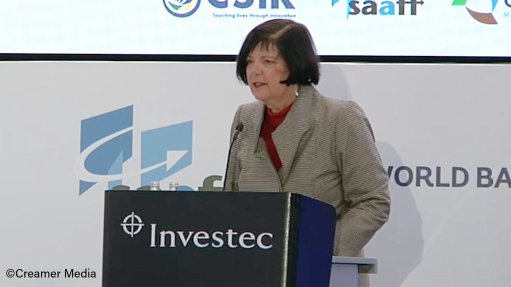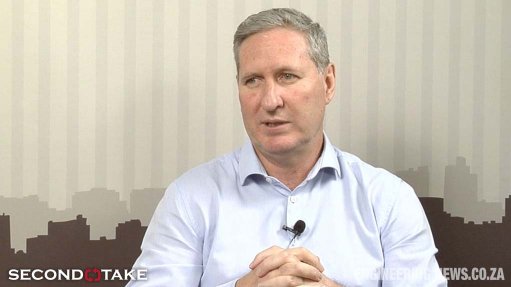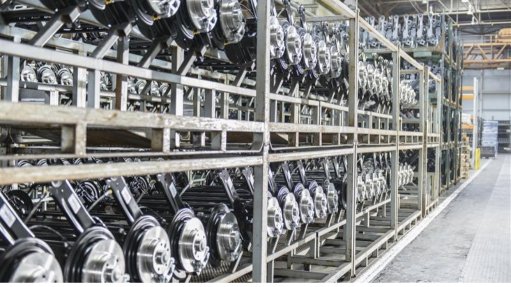Reciprocal tariffs should exclude vulnerable developing countries, Unctad says
A sweeping spate of steeper tariffs recently introduced by major economies is raising concerns over escalating trade tensions and their impact on developing countries, says intergovernmental organisation UN Trade and Development (Unctad).
Unctad notes that, over the years, a rules-based global trading system has boosted international commerce and contributed to a gradual, steady decline in tariffs – a tax that countries levy on imported goods.
In 2023, about two-thirds of world trade occurred without tariffs.
In a new report released on April 14, Unctad says it is amping up calls that the poorest and most vulnerable economies be exempt from “reciprocal tariffs” announced by the US administration on April 2.
These tariffs, currently on pause for 90 days, were calculated at rates to balance bilateral merchandise trade deficits between the US and 57 of its trading partners – ranging from 11% for Cameroon to 50% for Lesotho, it says.
The report, titled ‘Escalating tariffs: The impact on small and vulnerable economies’, finds that, in many cases, reciprocal tariffs risk devastating developing and least developed countries (LDCs), without significantly reducing US trade deficits or increasing revenue collection.
Unctad explains that the 57 trading partners concerned – 11 of them LDCs – contribute minimally to US trade deficits.
For example, 28 of them each account for less than 0.1% of the deficits yet could still be subject to reciprocal tariffs, the organisation says.
As many of these economies are small in size and structurally weak, with low purchasing power, they offer limited export market opportunities for the US, it adds.
“Any trade concessions they grant would mean little to the US, while potentially reducing their own revenue collection,” the report underscores.
It indicates that if the reciprocal tariffs are implemented after the 90-day pause, demands for many imported goods are likely to decrease because of higher prices.
“Even if US import levels were to remain at 2024 levels, additional tariff revenue collected from poorer and smaller economies would be minimal,” says Unctad.
For each of 36 of the 57 trading partners, the reciprocal tariffs would generate less than 1% of US current tariff revenues – at about $83-billion in 2024. This means the total contribution of these 36 economies would be about $4-billion, or about 5% of what the US collected in custom duties in 2024.
The report also notes that several countries facing potential reciprocal tariffs export agricultural commodities the US does not produce, for which there are few substitutes.
Some examples are vanilla from Madagascar or cocoa from Côte d'Ivoire and Ghana.
In 2024, the US imported vanilla worth about $150-million from Madagascar. Cocoa imports from Côte d'Ivoire were close to $800-million, while imports from Ghana were valued at about $200-million.
Unctad notes that increasing tariffs on these goods, despite possibilities to add some revenues, is likely to result in higher prices for consumers.
Comments
Press Office
Announcements
What's On
Subscribe to improve your user experience...
Option 1 (equivalent of R125 a month):
Receive a weekly copy of Creamer Media's Engineering News & Mining Weekly magazine
(print copy for those in South Africa and e-magazine for those outside of South Africa)
Receive daily email newsletters
Access to full search results
Access archive of magazine back copies
Access to Projects in Progress
Access to ONE Research Report of your choice in PDF format
Option 2 (equivalent of R375 a month):
All benefits from Option 1
PLUS
Access to Creamer Media's Research Channel Africa for ALL Research Reports, in PDF format, on various industrial and mining sectors
including Electricity; Water; Energy Transition; Hydrogen; Roads, Rail and Ports; Coal; Gold; Platinum; Battery Metals; etc.
Already a subscriber?
Forgotten your password?
Receive weekly copy of Creamer Media's Engineering News & Mining Weekly magazine (print copy for those in South Africa and e-magazine for those outside of South Africa)
➕
Recieve daily email newsletters
➕
Access to full search results
➕
Access archive of magazine back copies
➕
Access to Projects in Progress
➕
Access to ONE Research Report of your choice in PDF format
RESEARCH CHANNEL AFRICA
R4500 (equivalent of R375 a month)
SUBSCRIBEAll benefits from Option 1
➕
Access to Creamer Media's Research Channel Africa for ALL Research Reports on various industrial and mining sectors, in PDF format, including on:
Electricity
➕
Water
➕
Energy Transition
➕
Hydrogen
➕
Roads, Rail and Ports
➕
Coal
➕
Gold
➕
Platinum
➕
Battery Metals
➕
etc.
Receive all benefits from Option 1 or Option 2 delivered to numerous people at your company
➕
Multiple User names and Passwords for simultaneous log-ins
➕
Intranet integration access to all in your organisation


















